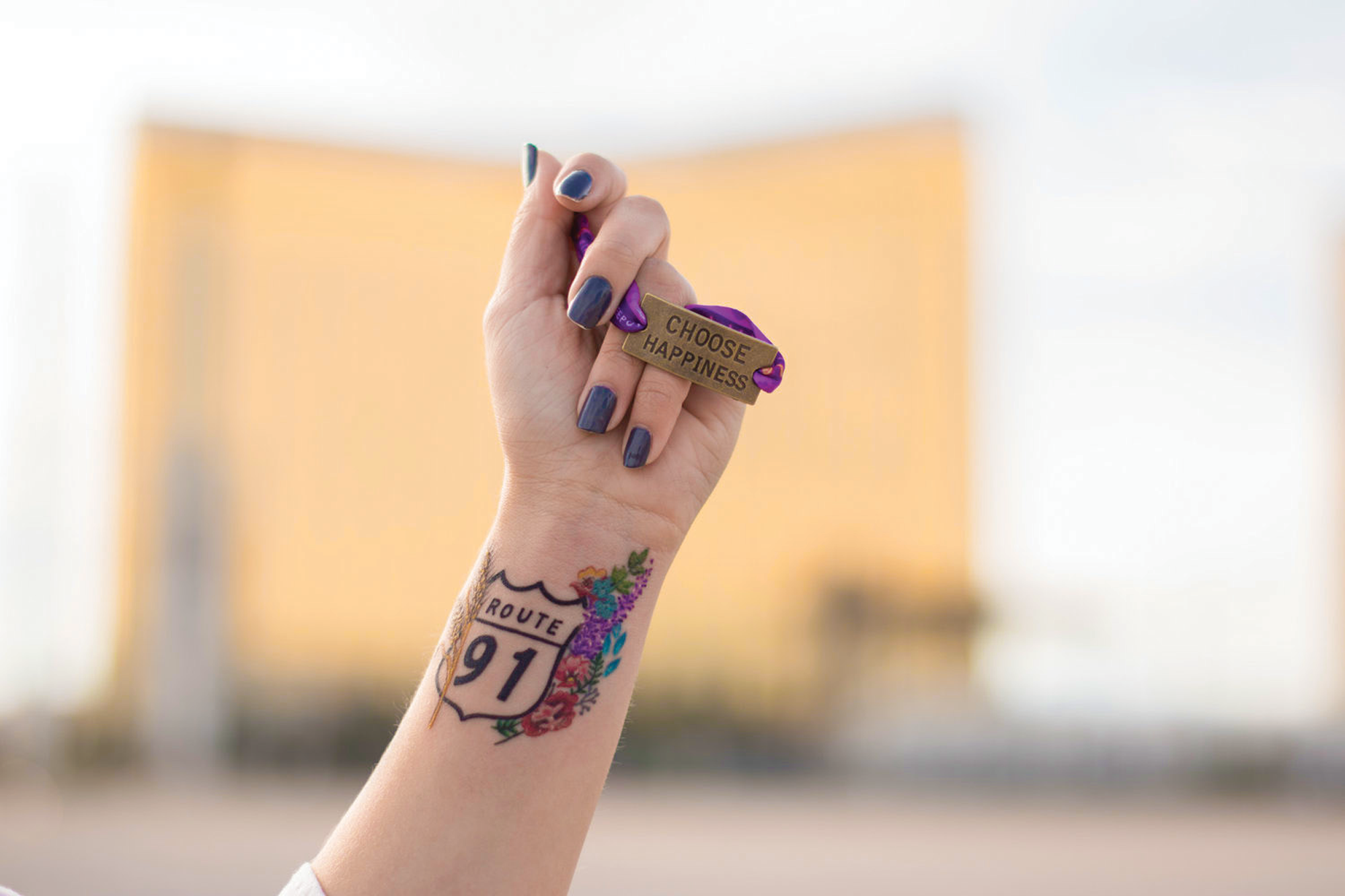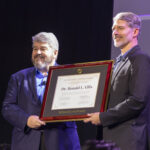
Survivors of the deadliest mass shooting in modern American history look back at the 2017 Route 91 Harvest music festival in Las Vegas where 58 people were killed and 850 people were wounded by shooter Stephen Paddock.
“I remember sounds going off that most people thought were fireworks, but it was when (country singer) Jason Aldean began his second song that it turned into a full gunfire (that sounded like a) machine gun,” said Ellen Davis, junior political science and international studies double major. “That was when everyone realized it wasn’t fireworks.”
When the shooting began, Ellen Davis immediately dropped to her hands and knees in a duck and cover position to make herself smaller. This, however, resulted in an injury to her leg from shattered glass.
Looking for safety, Davis said she found her way to a hangar where she noticed the glass in her leg. An off-duty nurse who was nearby bandaged her leg. Afterward, she was driven to the University of Nevada, Las Vegas, where she spotted a friend and safely went to her friend’s house.
Looking back at the experience now, Davis said she was fortunate she did not have the emotional scars from the event as much as the other survivors.
“Even though I was in one of the worst places you can be in the whole festival, I have become really desensitized to everything. I’ve told this story a hundred times to people who ask,” Davis said. “I just channel the traumatic things that happened into finding a solution through activism.”
Activism is one things Davis said she encourages students to take part in. Ellen said the people who need to make a change in gun violence are the ones who have not had to experience the trauma.
“A lot of the people who are taking part in the activism are the people who have had to go through it before and that’s not who should be making this change,” Davis said. “It needs to be everyone else that stands up and says, ‘This is a problem that we need to change. We need to prevent further violence.’ It’s disheartening to see that not a lot has changed.”
Davis has participated in many gun violence protests over the past year but primarily speaks at events for March for Our Lives, a nationwide movement that came about after the shooting at Marjory Stoneman Douglas High School in Parkland, Fla., where students were killed. She also spoke Aug. 4 at the SoCal March on the National Rifle Association, where residents of Southern California marched one mile to the NRA headquarters in Brea.
Davis’ family has also participated in these events. Her sister organized a March for Our Lives event at Polytechnic High School in Riverside where she read Davis’ speech.
“Many Vegas survivors don’t like to politicize our tragedy,” Davis said. “But trying to save others from experiencing what we did is not political.”
While the shooting sparked more political discussion around gun violence, not much accomplished nationally.
Some states passed individual laws, including “red flag” laws, which said the court could confiscate guns from people who seemed violent. This was passed in eight states.
After the Parkland shooting, Florida, passed laws raising the legal age to purchase a gun from 18 to 21 and banned bump stocks, which are devices that allow semiautomatic rifles to mirror the rapid-fire discharge of a fully-automatic weapon.
Florida was one of the eight states that participated in the “red flag” law.
While Davis said distancing herself from the shooting helps her talk about the experience, she has not fully recovered or moved past the trauma.
Survivors are not the only ones affected by the tragedy. Families also feel the aftermath of traumatic events.
Dr. Dirk Davis, associate vice president of academics for CBU’s Online and Professional Studies and Ellen Davis’ father, said his first reaction was disbelief, which eventually resolved into forgiveness and acceptance.
“Someone at my church gave me this book called ‘The Book of Forgiveness’ and I spent the next several months working through forgiveness and letting go,” Dirk Davis said. “It’s still an emotional event and always will be but it doesn’t consume me every day like it did before.”
Davis said he believes forgiveness is the answer to moving forward and a choice that needs to be made daily.
“I had to get to a point where I could forgive and be OK with the outcome,” Dirk Davis said. “I have a haunting notion that love is the key, even with shooters, but I am a fallible human being so I haven’t worked that part out to perfection, but love is the answer to how we get there.”
Chelsea Sanderson, senior business administration major, went to the festival with friends but left before the shooting. However, her friends stayed.
Sanderson said not knowing how to help her friends move on afterward was the worst part.
“I could not tell what they were thinking or feeling, and not being able to help carry their burdens left me feeling helpless,” Sanderson said.
Las Vegas held a Day of remembrance Oct. 1, which included a sunrise remembrance ceremony held by the police department and a prayer vigil at City Hall. The Las Vegas Strip went completely dark as names of the victims were read at 10:05 p.m. — the time the shooting began.
Volunteers also created a garden where they planted trees representing the 58 lives lost and one giant oak to represent life. The newest addition to the garden is a memorial wall, which consists of memorial plaques designed to last for generations, said Las Vegas Mayor Carolyn Goodman.
Jason Aldean held a concert Sept. 29 in Irvine, Calif., where several survivors attended to show that although they were devastated by the attack, they were not defeated.


